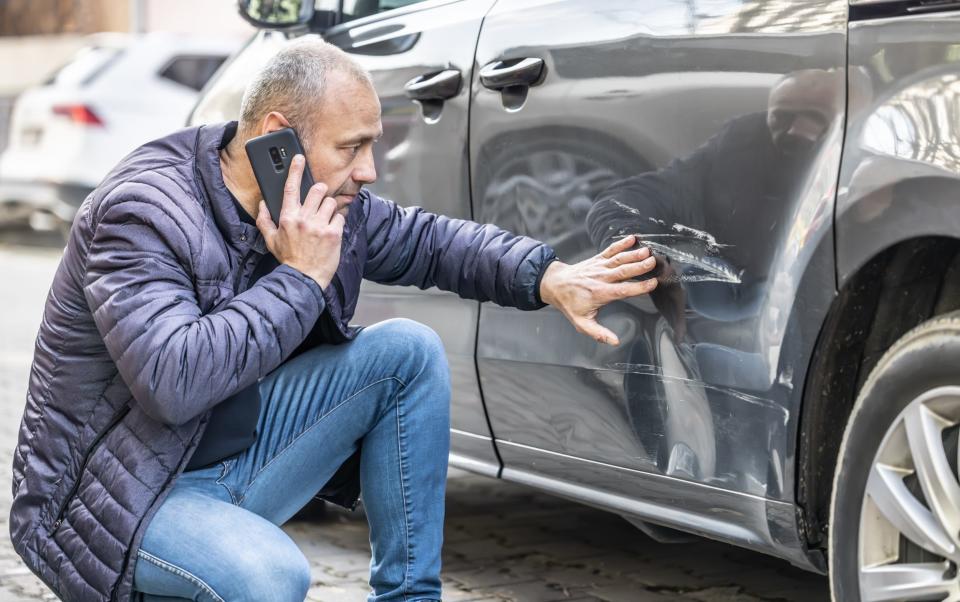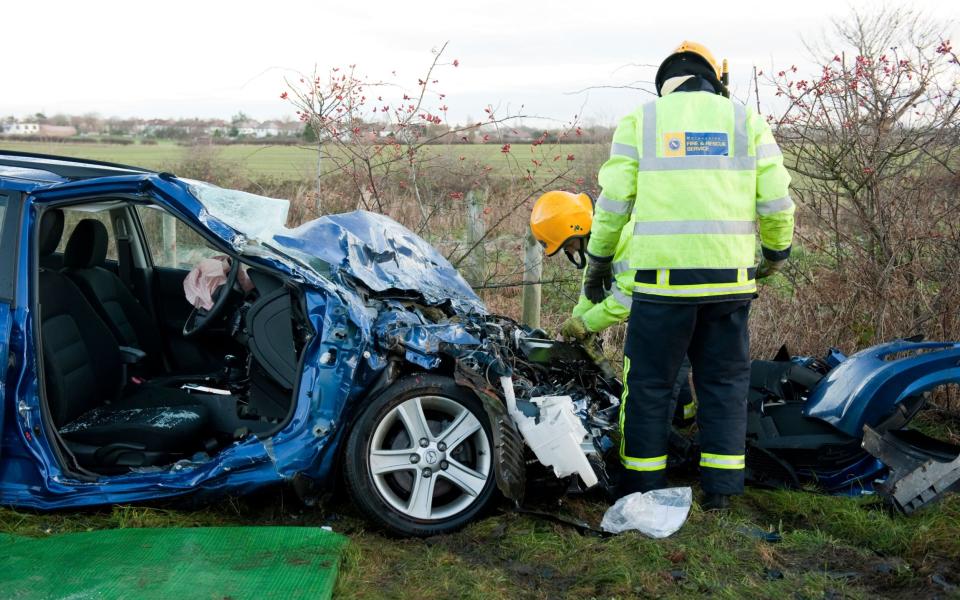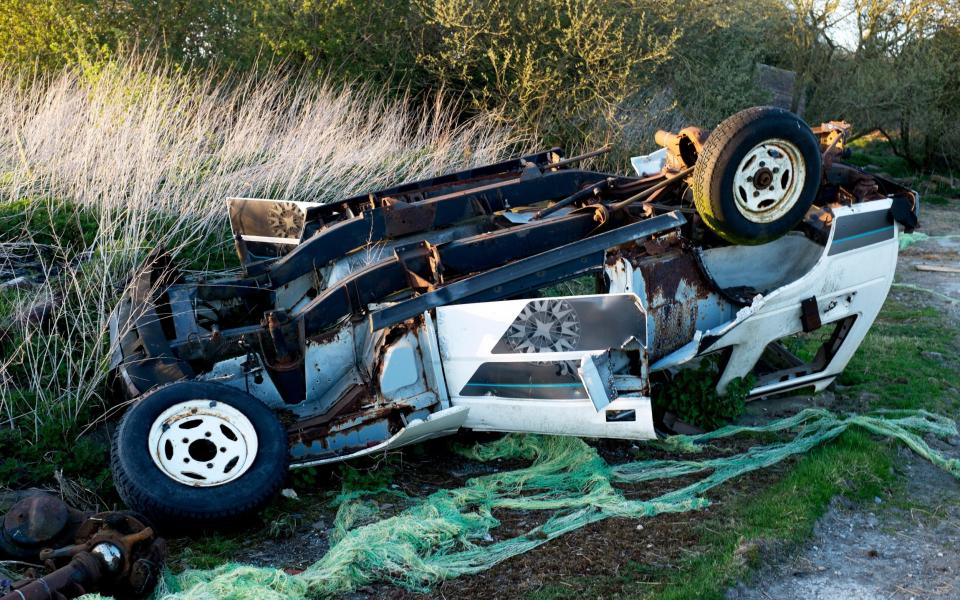Car owners could lose thousands as insurance ‘safety net’ is suspended

At the end of April, car buyers will lose a valuable safety net that could cost them thousands of pounds.
That’s when the Financial Conduct Authority (FCA) will stop companies selling GAP (Guaranteed Asset Protection) insurance. This add-on cover is bought by drivers worried that if their motor is written off by an insurer, their insurance settlement won’t buy a like-for-like replacement or fully pay off a finance company.
In 2022, 1.85 million GAP policies worth £350 million were sold in the UK. Currently about 30 per cent of vehicle buyers purchase GAP cover and that proportion is forecast to more than double within the next four years.
By indefinitely suspending GAP insurance, the FCA will put the kibosh on many drivers’ dreams of replacing a written-off car. People like Hamzah Nadeem. The pharmacist from Telford in Shropshire has just bought a BMW 530d after his previous 435d was involved in a crash.
Nadeem told us: “Without having GAP insurance, I would have lost £10,000 because of the shortfall between what the insurer paid and the cost of replacing the car. I would never buy a car without GAP insurance. My policy only cost £296 for four years.”
Why is the FCA suspending GAP?
GAP insurance is often sold alongside finance by car dealers or through independent brokers. But finance regulator the FCA found that in some cases 70 per cent of the customer’s GAP premium was going in commission, usually when it was sold by car dealers.
It is now suspending dealers from selling GAP from 31 March 2024. Independent brokers have a month’s grace to work out how they can improve value for consumers. The FCA’s executive director of consumers and competition, Sheldon Mills, said: “GAP insurance can provide a useful service to customers, but in its current form it does not offer fair value and we want to see improvements.”
The FCA says it has looked at the value of total claims costs as a proportion of premiums paid. It claims the ratio is six per cent for GAP insurance versus 65 per cent for motor insurance.
But David Burns-Keane, who founded online retailer Gapinsurance.co.uk 20 years ago, countered: “No one knows how they’ve come up with that figure. In 2022, our claims ratio for GAP was 16 per cent. But in some years it’s been more than 100 per cent.”
Another GAP provider which was fearful of FCA retribution for speaking out stated its claims ratio for 2022 was 38 per cent. And while the FCA says average payouts are £529, this provider’s was £3,300.
Chief executive of the British Insurance Broker’s Association (BIBA), Graeme Trudgill, said: “We believe that when sold in the heavily regulated environment by brokers this insurance has utility, offers fair value and has always seen high customer satisfaction.”

Car buyers will lose out
The GAP providers we spoke to believe about 50 per cent of the car-buying public don’t know about GAP insurance. People think their regular motor insurance will enable them to replace their written-off car with a like-for-like model.
One provider claimed: “For a lot of people, the first time they hear about GAP insurance is when they go into a car dealer. They then have a choice as to whether they take out the dealer’s insurance or look around for a cheaper policy from an online broker like ours.
“What the FCA will do by limiting commission is create conditions that car dealers can’t live with. That will see dealers leave the market and mean thousands of buyers won’t find out about GAP insurance. [Dealer group] Motorpoint has already deregulated and stopped selling GAP, which is 75,000 buyers that won’t find out about GAP.”
What is the impact on the GAP insurance industry?
As you might expect, the GAP industry is upset at having its business suspended. Burns-Keane said: “Part of me supports what the FCA is doing. A car dealer was selling a three-year GAP insurance policy for £1,350. We were selling the exact same policy, from the same insurer, for £300. I’ve been calling out car dealers over this for years.
“But without being able to sell GAP insurance, I don’t have a business. I’ve been holding off making people redundant but the more I burn through cash, the more of a problem it becomes.”
Richard Lee, managing director of InsureThat, said: “We are perplexed as to how the current messaging provides reassurance to the industry and consumers. Instead we see a state of near paralysis, which is helpful to neither.”
BIBA’s Trudgill added: “This is severely affecting vehicle owners or buyers who may now face challenges getting the cover they need, as well as some insurance brokers’ businesses that focus on GAP insurance.”
Shouldn’t comprehensive car insurance be comprehensive?
This is the obvious question. But for insurers, there are two separate but linked risks: the car’s value when the policy is taken out and the depreciation it suffers during the cover period.
When an insurer declares a car a total loss (write-off), the final settlement figure is called its market value. But Mr Nadeem said: “With standard insurance, the ‘market value’ they give for a car is never the true market value. If I’d had finance on my car and no GAP, I’d have been £4,000 to £6,000 out of pocket after my insurance payout.”
His example isn’t unusual. Unless you’re near the end of a finance deal, comprehensive insurance is unlikely to be sufficient to pay off the remainder owed on a car. One GAP provider said: “They call it fully comprehensive, but every year insurers charge higher premiums for lower risk.”

So what can you do?
If you’re looking at buying a new or used car and were considering GAP insurance, there are a couple of options. There are lease contracts that guarantee to protect your shortfall after a write-off. Or you can get insured value insurance which covers the car’s purchase price for 12 months or 10,000 miles. But both are expensive add-ons.
Alternatively, just hope the FCA works out a way forwards that enables GAP insurers to continue trading.
Recommended
War on drivers heralds death of the two-car household

 Yahoo Sport
Yahoo Sport 





































